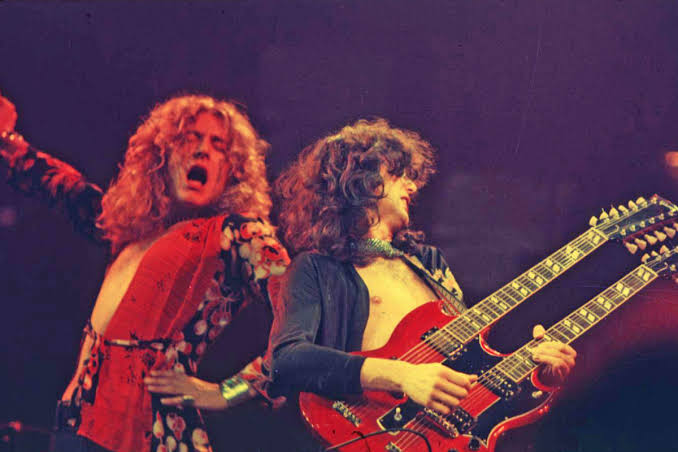Robert Plant and Jimmy Page’s friendship is one of the most iconic and enduring relationships in the history of rock music. Their bond was forged during the formation of Led Zeppelin in 1968, when Page, already an established session guitarist and former member of The Yardbirds, sought a powerful lead vocalist to complete his new band. At the time, Plant was relatively unknown in the wider music world but had already gained recognition within the British rock scene for his impressive vocal abilities and stage presence.
The two first met when Page approached Plant with an offer to join his band. The initial meeting was a significant moment, not just for the two musicians, but for the entire rock world. Page had already been playing with a number of musicians in a session capacity and was looking for the right combination of players to bring his musical vision to life. Plant, on the other hand, was looking for an opportunity to break out and showcase his talents. From the very start, the connection between Page and Plant was immediate and intense, setting the stage for what would become one of the most creative and successful partnerships in rock history.
In the early days of Led Zeppelin, Page and Plant quickly established a deep musical and personal chemistry. Page’s intricate guitar work, which blended elements of blues, rock, and Eastern music, was complemented perfectly by Plant’s soaring, powerful vocals. The contrast between Page’s often subdued, technical guitar style and Plant’s dynamic vocal range created a musical synergy that would go on to define the band’s sound. Led Zeppelin’s music, from their self-titled debut to their later albums, reflected this unique partnership, with songs like “Stairway to Heaven” and “Whole Lotta Love” becoming timeless anthems of rock music.
The dynamic between Plant and Page was not limited to the studio. Their onstage performances were electrifying, with Plant’s commanding stage presence and vocal prowess driving the band’s performances, while Page’s virtuoso guitar playing captivated audiences worldwide. The chemistry between them was palpable, and they quickly became the face of Led Zeppelin, their partnership being the focal point of the band’s success. Plant often described Page as the creative force behind Led Zeppelin, while Page, in turn, acknowledged Plant’s contribution as being essential to the band’s overall sound.
Their friendship, however, was not without its challenges. The intense pressures of fame, combined with the hectic touring schedule and the personal demons that both men faced, often led to tensions within the band. Despite these challenges, Page and Plant’s bond remained strong, largely due to their shared respect for each other’s talents and their deep commitment to their music. The ups and downs they experienced together only strengthened their friendship and artistic collaboration.
As Led Zeppelin grew in stature, so did the legends surrounding Page and Plant’s friendship. Their bond was not just about the music; it was about mutual trust, understanding, and a shared vision of what rock music could be. Despite the eventual disbanding of Led Zeppelin following the death of drummer John Bonham in 1980, the friendship between Page and Plant endured. Over the years, they would occasionally reunite for projects, most notably the 1994 album No Quarter: Jimmy Page and Robert Plant Unledded, which showcased their ability to adapt and evolve while still honoring their roots.
In the end, the friendship between Robert Plant and Jimmy Page is one of the most celebrated in rock history. It was built on mutual respect, shared artistic vision, and a creative partnership that resulted in some of the most influential and beloved music of all time. Their legacy continues to inspire musicians and fans alike, a testament to the power of their friendship and the enduring impact of Led Zeppelin’s music.
